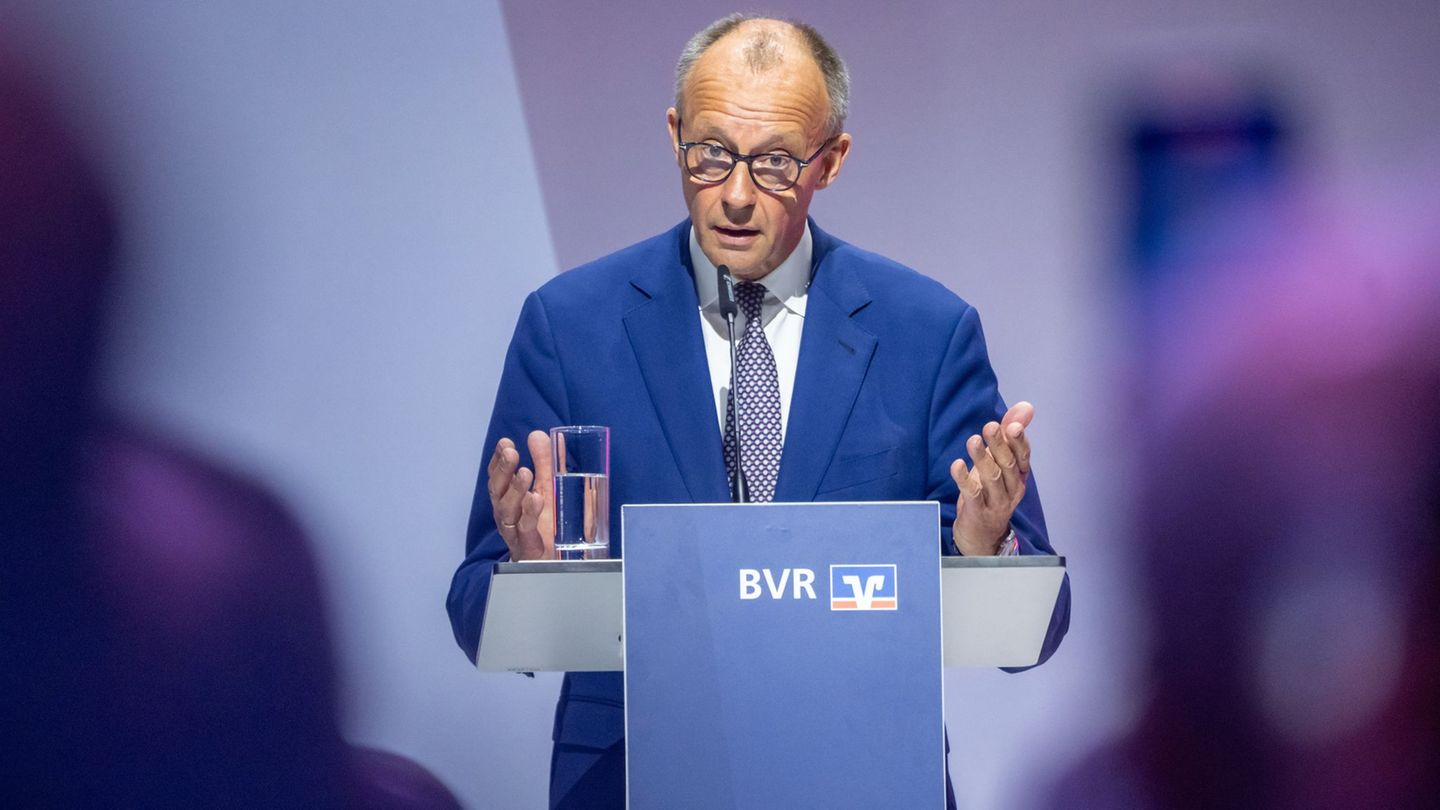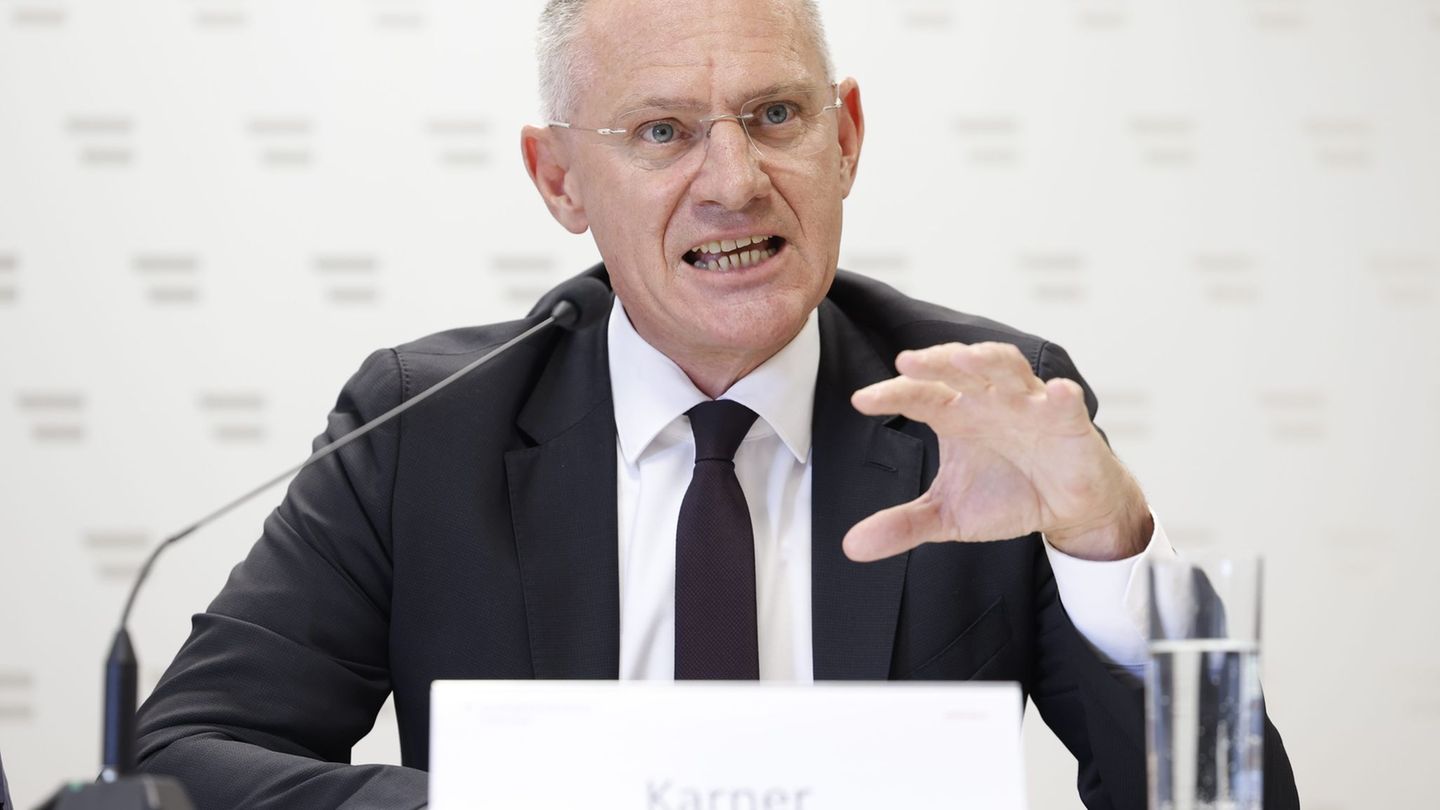State Parliament
Kretschmer remains Prime Minister of Saxony
Copy the current link
In the end it was just a short thrill. Michael Kretschmer is head of government in Saxony for another electoral term. But governing is becoming more difficult than before.
The Saxon Prime Minister Michael Kretschmer (CDU) can shape the fortunes of the Free State for another five years – albeit under completely different circumstances. For the first time in Saxony, a minority government is taking office. The coalition of CDU and SPD is ten votes short of its own majority. Kretschmer stated after his election that he wanted to work together across party lines. “We can set off together today.”
Re-election succeeds in the second round
Kretschmer only managed his second re-election in the state parliament in the second round. 69 MPs voted for him. His opponents Jörg Urban from the AfD and Matthias Berger as the Free Voters candidate received one vote and 39 votes respectively. In the first round of voting, Kretschmer missed an absolute majority and only received 55 votes. In the second round, a simple majority was enough.
AfD tricks and gives votes to Free Voters candidates
In the end, there was something like a “Kemmerich moment” in the Saxon state parliament. The Greens actually wanted to prevent this with a proposal for a new counting method for the election. In the second round of voting, the AfD no longer supported its own party and parliamentary group leader Jörg Urban, but instead gave its vote to the Free Voters’ candidate, Berger.
This was fatally reminiscent of an incident in the neighboring Free State of Thuringia. In February 2020, the FDP politician Thomas Kemmerich was elected Prime Minister there with the votes of the AfD. The AfD surprisingly withheld support for its candidate in the third round of voting and voted for Kemmerich together with the CDU and FDP. He accepted the election, but resigned shortly afterwards after protests.
But in Saxony the calculation didn’t work out. “Mr Berger also stands for political change in Saxony,” said Urban, explaining the unusual vote. He didn’t see it as a deception. “It was an attempt not to deter people who want to vote for Mr. Berger and his model by obviously supporting the AfD.”
Greens are at peace with themselves
In the end, the relief in the state parliament was noticeable among almost all parliamentary groups – even among the Greens, who have now returned to the opposition benches after five years in government. “We are democrats through and through. It was important that a democratic prime minister come into office without AfD votes,” said parliamentary group leader Franziska Schubert. The Alliance Greens have made their contribution to this.
“Opposition gives back certain freedoms, we’re looking forward to that to some extent,” said Schubert, finally drawing a line under the broken relationship with the CDU. The day before she had made it clear that Kretschmer could not count on the votes of the Greens. “We are neither hotheads nor do we tend to lack impulse control,” said Schubert. In the end, the Greens probably abstained. Eleven MPs abstained.
Leftists openly support Kretschmer
The fact that the Left, of all people, came out in support of Kretschmer before the election can be described as a surprise. In the last three decades, the CDU had rejected every proposal from the left in parliament. “We are giving Michael Kretschmer a leap of faith, but we are not issuing a blank check,” said parliamentary group leader Susanne Schaper.
Christian Hartmann, parliamentary group leader of the CDU, subsequently saw no violation of his party’s incompatibility decision if one were to work with the left on issues from now on. In principle, he said, he doesn’t think much of incompatibility decisions.
Berger does not believe that the minority government will be successful
Free voter candidate Berger was satisfied with his result. “We completely stumbled into it.” Four months ago, no one expected the Free Voters to nominate a candidate, and now he has even taken second place. Berger wished Kretschmer good luck, but does not believe the minority government will be successful. He doesn’t see a majority in parliament for the upcoming budget.
Kretschmer emphasized that a new double budget for 2025 and 2026 was the first task for the new government. “For this alone we need the support of the members of the Saxon state parliament.”
The “age of minorities” had begun the day before with hopeful signs. Exactly at the moment when Kretschmer and SPD leader Henning Homann signed the coalition agreement in the upper state parliament foyer, the sun came out and put the alliance partners in the right light. Both see their contract as an offer to others to help shape it.
The CDU and SPD are ten votes short of their own majority
After the election, Kretschmer called on parliamentarians to work together. The strenuous time of the election campaign is over, now it’s about giving the country a good future, he said.
The CDU politician and his minority government rely on votes from other factions for majorities. To do this, they want to involve the state parliament more. The CDU and SPD have announced a consultation mechanism with which the other parties should be involved in projects at an early stage and can also submit their own suggestions. This basically also applies to the AfD.
Nevertheless, the CDU and SPD want to seek their majorities beyond the AfD, whose Saxon state association is classified by the Office for the Protection of the Constitution as a right-wing extremist effort. Kretschmer and SPD leader Henning Homann had repeatedly emphasized that there could be no cooperation with the AfD. Kretschmer wants to present his new cabinet in Dresden on Thursday.
dpa
Source: Stern
I have been working in the news industry for over 6 years, first as a reporter and now as an editor. I have covered politics extensively, and my work has appeared in major newspapers and online news outlets around the world. In addition to my writing, I also contribute regularly to 24 Hours World.




